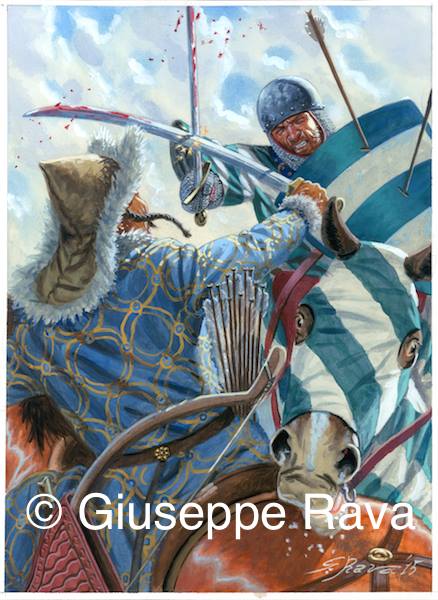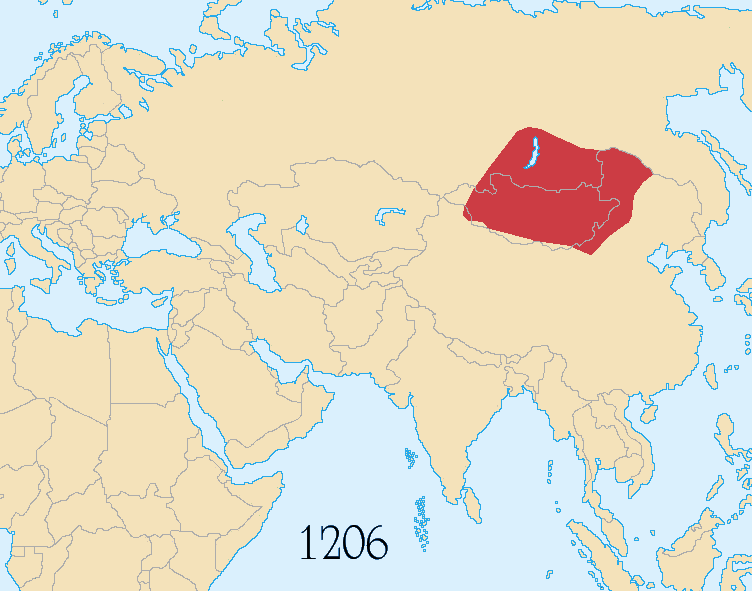dinnerblaster
Knight

I have no strong opinion on the subject, but the question has crossed my mind multiple times recently. Since the beginning of the modern age, European colonial powers have waged many major global wars that have taken place across more than one continent and thus could be considered world wars. I'm going to list below my candidates for such conflicts and my personal requirements for a war to be named a world war candidate.
Requirements:
- Must take place during the modern era (approximately AD 1490-)
- There must be great powers on both warring sides
- Action has to take place on three or more continents and the seas surrounding them
- There has to be a point during the war when there is warfare simultaneously on three or more continents
- Directly unrelated wars can be considered parts of a larger conflict if they involve even partly the same belligerents
The world war candidates:
The Great Turkish War/War of the Reunions/Nine Years' War (1683-1699)
Belligerents:
France and Jacobites
Ottoman Empire and its vassal states
vs.
The Grand Alliance
The Holy League
Reasons to be a world war:
At that point of history the partaking powers were already multi-continental, which brought the fighting not only to Europe, but to the Americas, India and the Caribbean as well. These two wars aren't often thought of as one, but there are many factors that speak for them to be more or less the same. The most obvious one is that the Holy Roman Empire was a major player in both conflicts, fighting for many years on two fronts (something Germany would end up doing in subsequent global struggles). Having the same enemy thus made the French and Turks basically co-belligerents. Besides that France also gave the Ottomans diplomatic support and retained warm relations with them despite not being an official ally.
___
The War of the Austrian Succession (1740-174
Belligerents:
Pro-Habsburg German states
Great Britain
Dutch Republic
Sardinia
Russia
vs.
Pro-Prussian German states
France
Spain
Naples
Genoa
Sweden
RtbaWW:
The same ones as the previous conflict, the colonies and trading posts gave the war a multi-continental scale that spanned multiple overseas theaters on Europe, India and North America.
___
The Seven Years' War (1754-1763)
Major belligerents:
Great Britain
Prussia
Portugal
vs.
Austria
Russia
Spain
Sweden
Mughal Empire
RtbaWW:
Yet again pretty much the same reasons as the two previously mentioned ones. The area of operations in Europe wasn't as wide as in the previous struggles, but the overseas theaters were larger and more vital than ever and this time also involved, though briefly, Africa. Many historians have posthumously given the conflict a world war status, with none other than Winston Churchill going as far as calling it the "real" world war 1.
___
American Revolutionary War (1775-1783)
Major belligerents:
Great Britain
German states (non-combat supportive role)
vs.
United States
France
Spain
Netherlands
Mysore
RtbaWW:
Though warfare on European soil was limited, the war nonetheless spread over three continents and especially the waters surrounding them. Also for the first time in history there was an ideological factor involved in a global conflict.
__
The Great French War (1792-1815)
Major belligerents:
France
Denmark
Mysore
United States
Mexican and South American Revolutionaries
vs.
The seven coalitions and their co-belligerents
Haiti
RtbaWW:
This war has more than enough names, enough for me not to start listing them here. The wars that followed the French Revolution spanned nearly every part of Europe either directly or indirectly. Nearly every great power on the planet, save for China and Japan, took part in it and the warfare it caused spanned wider area than ever before. The entirety of Europe was involved but there were also theaters and linked action and/or proxys in India, Caucasus, Northern Africa, Middle-East, Caribbean, Haiti, all over the American continent as well as the Indian and Pacific Oceans. The war had a strong ideological background and massive social and economic consequences and the roots of both 20th century world wars can be linked directly to this conflict. The war (and the revolution preceding it) also introduced in practice the concepts of total war, nationalism, social liberalism, secularism, pan-continentalism, gender and racial equality and direct democracy, ideals that would come to change the face of the world forever. The war is usually split into two phases, the French Revolutionary Wars and the Napoleonic Wars, but I personally prefer to consider them a single conflict with a short armistice in the middle.
___
What are your opinions on the matter? Do you agree that there conflicts preceding the war that started on 1914 that could be considered world wars or is that nonsense to you? To clarify, I'm not trying to persuade people to think my way, I'd be glad to hear all kinds of opinions on the subject.
Requirements:
- Must take place during the modern era (approximately AD 1490-)
- There must be great powers on both warring sides
- Action has to take place on three or more continents and the seas surrounding them
- There has to be a point during the war when there is warfare simultaneously on three or more continents
- Directly unrelated wars can be considered parts of a larger conflict if they involve even partly the same belligerents
The world war candidates:
The Great Turkish War/War of the Reunions/Nine Years' War (1683-1699)
Belligerents:
France and Jacobites
Ottoman Empire and its vassal states
vs.
The Grand Alliance
The Holy League
Reasons to be a world war:
At that point of history the partaking powers were already multi-continental, which brought the fighting not only to Europe, but to the Americas, India and the Caribbean as well. These two wars aren't often thought of as one, but there are many factors that speak for them to be more or less the same. The most obvious one is that the Holy Roman Empire was a major player in both conflicts, fighting for many years on two fronts (something Germany would end up doing in subsequent global struggles). Having the same enemy thus made the French and Turks basically co-belligerents. Besides that France also gave the Ottomans diplomatic support and retained warm relations with them despite not being an official ally.
___
The War of the Austrian Succession (1740-174
Belligerents:
Pro-Habsburg German states
Great Britain
Dutch Republic
Sardinia
Russia
vs.
Pro-Prussian German states
France
Spain
Naples
Genoa
Sweden
RtbaWW:
The same ones as the previous conflict, the colonies and trading posts gave the war a multi-continental scale that spanned multiple overseas theaters on Europe, India and North America.
___
The Seven Years' War (1754-1763)
Major belligerents:
Great Britain
Prussia
Portugal
vs.
Austria
Russia
Spain
Sweden
Mughal Empire
RtbaWW:
Yet again pretty much the same reasons as the two previously mentioned ones. The area of operations in Europe wasn't as wide as in the previous struggles, but the overseas theaters were larger and more vital than ever and this time also involved, though briefly, Africa. Many historians have posthumously given the conflict a world war status, with none other than Winston Churchill going as far as calling it the "real" world war 1.
___
American Revolutionary War (1775-1783)
Major belligerents:
Great Britain
German states (non-combat supportive role)
vs.
United States
France
Spain
Netherlands
Mysore
RtbaWW:
Though warfare on European soil was limited, the war nonetheless spread over three continents and especially the waters surrounding them. Also for the first time in history there was an ideological factor involved in a global conflict.
__
The Great French War (1792-1815)
Major belligerents:
France
Denmark
Mysore
United States
Mexican and South American Revolutionaries
vs.
The seven coalitions and their co-belligerents
Haiti
RtbaWW:
This war has more than enough names, enough for me not to start listing them here. The wars that followed the French Revolution spanned nearly every part of Europe either directly or indirectly. Nearly every great power on the planet, save for China and Japan, took part in it and the warfare it caused spanned wider area than ever before. The entirety of Europe was involved but there were also theaters and linked action and/or proxys in India, Caucasus, Northern Africa, Middle-East, Caribbean, Haiti, all over the American continent as well as the Indian and Pacific Oceans. The war had a strong ideological background and massive social and economic consequences and the roots of both 20th century world wars can be linked directly to this conflict. The war (and the revolution preceding it) also introduced in practice the concepts of total war, nationalism, social liberalism, secularism, pan-continentalism, gender and racial equality and direct democracy, ideals that would come to change the face of the world forever. The war is usually split into two phases, the French Revolutionary Wars and the Napoleonic Wars, but I personally prefer to consider them a single conflict with a short armistice in the middle.
___
What are your opinions on the matter? Do you agree that there conflicts preceding the war that started on 1914 that could be considered world wars or is that nonsense to you? To clarify, I'm not trying to persuade people to think my way, I'd be glad to hear all kinds of opinions on the subject.













